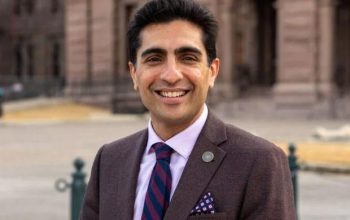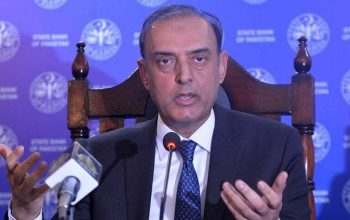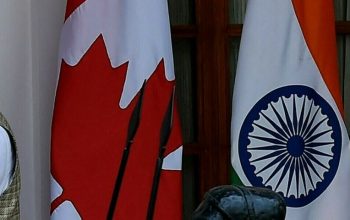There is a lot of upbeat and an urgent sense of reviving the economy in our country. This surge of optimism is the result of the recent visit of a high powered delegation from Saudi Arabia, led by their foreign minister. They held the long overdue investment talks, initially publicised for a much larger outlay, under the umbrella of the robust joint civil and military forum, better known as SIFC. The Saudis’ intention of investing six billion dollars in some lucrative projects here in our growth-stagnated economy is like a dream come true, though falling short on expectations. In our perilous security environment, the government has cleverly marketed these projects or made them too attractive for the Saudis to step back. Reko Diq copper and gold mine is one such project that can attract a risk taking investor. But in our country the correct picture of the economy driven measures usually emerges after a regime has changed.
I have witnessed or rather lived through the constant deteriorating security conditions in the country. This ugly phenomenon has flourished for various reasons but primarily owing to fighting the proxy wars in our backyard, and producing monsters and frankensteins within our inherently polarised society. I now have scant hope in our capacity to deal with this monumental problem of security that has so blatantly mushroomed in the length and breadth of the country. This one particular menace propelled by insurgencies has persistently continued to dry up the foreign direct investments in Pakistan for decades. In fact, too many multinational companies have wound up in the process and departed for good.
I remember it was sometime in September 1984 when I joined Pakistan Petroleum Ltd. My first field posting was at Kandhkot Gas Field. Today Kandhkot is in regular news due to the dakus of the katcha, a vernacular expression in vogue since long. Let me share my personal experience of that era when our camp office and residential area were fenced and guarded by armed locals but we remained under constant threat of some notorious dacoits. One name, Nadir Jaskani, topped the dreaded list. Purportedly a hand-written note from him demanding some kind of protection money was received in our camp office by our late Chief Engineer who promptly informed our Head Office in Karachi.
In those days an army officer (holding the rank of a Major) with his force and wherewithal was posted in Kandhkot and the unit operated from a Rest House. Regular patrolling of the infested area was undertaken in a show of force rather than eliminating the thriving scourge. I remained in constant touch with the army, civil administration and the police. The young and dynamic ASP-Kandhkot Syed Khurshid Alam Bokhari’s name deserves special mention for a very effective and commendable role he played when one of our geologists was kidnapped along with his double cabin pick-up by some dacoits while he was driving through the forest area towards one of our drilling sites located in the forest/katcha area. The geologist was let off by the bandits probably after a day or two at some deserted place in close vicinity from where he managed to reach Kandhkot somehow. Fortunately, he was not mistreated for being a Syed is looked upon with great reverence in interior Sindh. The ASP also got our vehicle recovered from the tribal area (commonly referred to as B area) in Balochistan.
After the above incident, the Company (PPL) engaged two platoons of the Frontier Constabulary at a hefty recurrent cost to provide its officers and staff a round the clock security which included escort services while traveling in the expanse of our gas field or visiting major city areas in our district and division when dealing with the Company matters.
Back in the 90s when I was posted in the head office and was entrusted with the job of getting the entire land acquisition record of the Company put in order, I came across certain correspondence from the archives which delved and pivoted around the security issues in Balochistan. This was much after our Sui Gas Field had become operational in 1955. A letter that I read with keen interest was written by the then Secretary of Petroleum, Mukhtar Masood, famous for writing some great literary Urdu books like Awaz-e-dost and Loh-e-Ayyam to name a couple. His letter was addressed to the Chief Secretary, Balochistan, conveying Gen Ayub Khan’s wish and instructions that all efforts be made to open up the hinterlands of Balochistan for the exploration of oil and gas reserves. Unfortunately, this remains the crux of the problem even today. As a matter fact, the problems have multiplied enormously and have assumed the proportion of an existential threat.
A few weeks ago I read an article excerpted from a book, Dear Mr Jinnah, in the magazine section of Dawn. The book is probably under publication and has been authored by a retired bureaucrat, Salman Faruqui. The released excerpts covered the rise and fall of a former prime minister, Muhammad Khan Junejo, vis a vis a kind of a tense relationship with General Zia-ul-Haq as witnessed by Faruqui from close quarters. It took me down memory lane to refresh as to what all had happened when Junejo came as the chief guest to inaugurate our Kandhkot Gas Field in 1987 or thereabouts, if memory serves me right. Two days earlier from his scheduled visit, the Company had inaugurated its unique Compression Project by General Zia-ul-Haq at Sui Gas Field. There a lavish and sumptuous feast had been served. At Kandhkot, in contrast, Junejo sat with the government dignitaries and notables of the area partaking Sindhi biryani with raita — an implementation of the one dish party rule which he himself had recently introduced. A short-sighted top gun in the Company thought that this would please the prime minister. Instead it turned out to be a faux pas that cost the Company dearly, as some of its valuable prospecting rights were reportedly given to OGDCL.
The problem of going into the mode of nostalgia or revisiting old memories is that we tend to digress from the main topic. Reverting to the main theme of my article, let may say this with complete sincerity and belief that no meaningful progress in Pakistan is possible unless the security environment is taken seriously as an existential threat, and some sort of settlement is reached amongst all stakeholders to begin the journey afresh. Diwan-e-Ghalib is an oracle for me and quoting one of his verses a compulsive passion.
Koi umeed ber nahin aati;
Koi surat nazar nahin aati.
Published in The Express Tribune, April 30th, 2024.
Like Opinion & Editorial on Facebook, follow @ETOpEd on Twitter to receive all updates on all our daily pieces.
Read the full story at the express tribune website.


